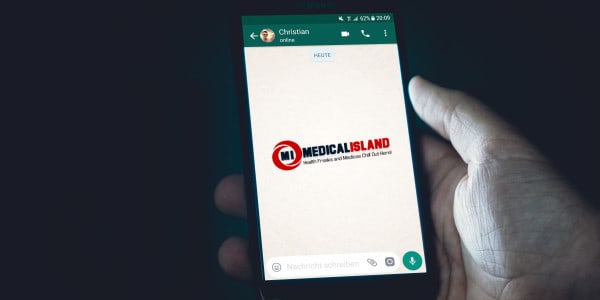The technological revolution witnessed in the past 2 decades has not left any field untouched, and medical sciences are no exception. This marriage of medical sciences and technology has led to the creation of its own niche field “medtech” with exciting new innovations from both hardware and software perspectives.

While hardware medtech innovations are still targeted towards medical professionals, for the most part, software medtech innovations have truly democratized access to safe, quality healthcare.
One of the best examples of the same is chatbots.
What is a Chatbot?
A chatbot fundamentally is a conversational software that uses advancements in artificial intelligence, machine learning and natural language processing to a closely approximate conversation with another human being. The same chatbot when aligned to a medical field, becomes a healthcare chatbot.
You must be hearing more and more about healthcare chatbots such as Your.MD, Florence, SmartBot360 in everyday conversation and for good reason – chatbots are actually considered a vastly more reliable and accurate alternative to mere online searches and WebMD scouring most patients do when they’re trying to ascribe their symptoms to a disease.
Chatbot Use Cases in Healthcare
In the simplest of use cases, one can envision a patient engaging in conversation with a chatbot where they provide all requisite information, describe their symptoms as they would to a medical professional. After indexing that information against its own repository, the chatbot would identify the problem and depending on its severity, would recommend a clinical visit to the healthcare professional.
It is important to understand that chatbots aren’t intended to be a replacement for traditional healthcare – they are intended to supplement it. Chatbots lighten the load on medical professionals significantly through correct deployment and serve as an automated tool for acquiring and engaging patients. Furthermore, chatbots enable the delivery of superior and more targeted patient care which when backed by 24/7 instant support can promote patient well-being in manners hitherto unexplored.
During these trying times as the world battles COVID-19 and more pressure is put on healthcare professionals than ever before, it is of paramount importance that the process of patient care is as automated as possible wherever possible to eliminate redundancies and lighten the load borne by our healthcare professionals, and chatbots show us the way forward.
Of course, not all chatbots are created equal and when it comes to healthcare that holds truer than anywhere else. With healthcare chatbots it is highly desirable that they be HIPAA compliant. HIPAA compliance is only possible in case of web bots and requires that set guidelines are fulfilled such as encryption in-transit and at-rest, strong passwords, training for employees, among others. Non-HIPAA compliant bots do exist, but their functionality is often limited to standalone use cases such as reminding a patient to take pills based on the information entered. In case the full potential for a chatbot is to be uncovered, it must be HIPAA compliant as only those bots can share the collected protected health information with covered entities such as doctors’ offices, psychologists, hospitals and insurance companies. Thus, while both, say, Florence as well as SmartBot360, are examples of healthcare chatbots, they are very different from each other with different use cases where HIPAA compliance makes all the difference.
The Future of Chatbots
Chatbots hold immense potential as successful implementations in the past few years have shown us, and as more and more technological advances occur and they learn and adapt to human behavior and language, they are only going to get more accurate and conversational.
Today chatbots are a welcome supplement to traditional healthcare where they’re designed to lighten the load of healthcare professionals but as things get increasingly more digital and the need for greater automation is felt, we’re not too far out from a future where chatbots become an important cornerstone of healthcare.

